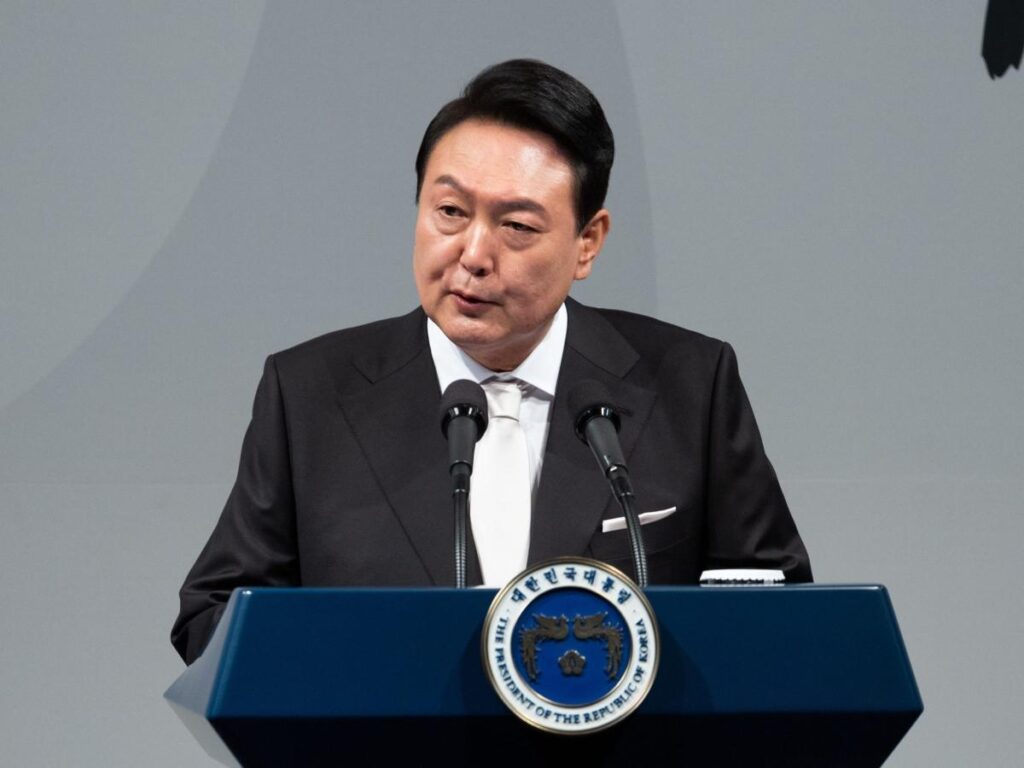South Korea’s National Assembly has made a historic decision by voting to impeach President Yoon Suk Yeol amid controversy over his recent attempt to impose martial law in early December. The parliamentary session saw the motion pass with a significant majority of 204 votes in favor and 85 against, alongside three abstentions and eight nullified votes, as reported by local outlets such as Yonhap. This action marks a significant escalation in the ongoing political crisis in South Korea, where Yoon’s authority is now in jeopardy due to widespread backlash against his martial law declaration. During this tumultuous time, Yoon will be temporarily suspended from his presidential duties while the constitutional court deliberates his fate.
The backdrop to Yoon’s impeachment is tethered to his controversial declaration of martial law on December 3, which was aimed at addressing what he termed “anti-state forces” threatening the nation’s stability. In a rare televised address, Yoon emphasized the urgency of the situation by asserting that martial law was necessary to restore order and normalize conditions in the country. However, public reaction was swift and fierce, with protests erupting across the capital, Seoul, demanding Yoon’s resignation. The declaration was rescinded just six hours later, following significant political pressure and a vote in Parliament, illustrating the rapid shift in public sentiment and the precariousness of Yoon’s position as president.
Despite surviving an initial impeachment vote the previous week—an attempt that was boycotted by members of his own People Power Party—the fallout from his martial law attempt proved insurmountable. Following the impeachment vote, Yoon released a statement indicating a temporary pause in his duties, affirming his commitment to continue serving despite the political challenges laid before him. He expressed resolve to accept both criticism and support from the public, committing himself to the nation until his presidency concludes. This rhetoric highlights Yoon’s strategy to rally support amid political turbulence and reflects his intent to confront the challenges head-on.
Yoon’s declaration of martial law marked the first such order in South Korea since its democratization in 1987, making it a deeply significant moment in the nation’s political landscape. The martial law declaration not only drew parallels to the oppressive measures of South Korea’s authoritarian past, notably the last martial law in 1979 after the assassination of President Park Chung Hee, but also galvanized public outrage over perceived governmental overreach and the potential for civil liberties to be compromised. As South Korea seeks to navigate its democratic principles, this episode further complicates the political fabric of the nation, setting a precedent that many politicians and citizens view as unacceptable.
In the immediate aftermath of the impeachment vote, scenes of jubilation emerged from the streets of Seoul, where thousands gathered to celebrate the legislative decision. This public display of enthusiasm underscores a broader sentiment against Yoon’s presidency and reflects a growing desire for accountability within the South Korean political system. The protests and celebrations are indicative of the polarization in public opinion regarding Yoon’s administration, as many citizens express their frustration over governance issues and call for adherence to democratic principles. The societal division signals a critical moment for the future trajectory of South Korean politics, driven by a populace keen on safeguarding their democratic rights.
Looking ahead, the constitutional court’s decision will be pivotal in determining whether Yoon will be permanently removed from office or restored to his presidential duties. The court has a timeframe of up to 180 days to issue a ruling, during which the political environment in South Korea could continue to evolve. The ongoing developments will be closely monitored by both domestic and international observers, as they illustrate not only the resilience of democratic institutions but also the delicate balance of power within the country’s governance. The outcome of this impeachment process could set a significant precedent in South Korea, shaping the nation’s political climate and potentially influencing future electoral outcomes as citizens remain engaged and informed.

